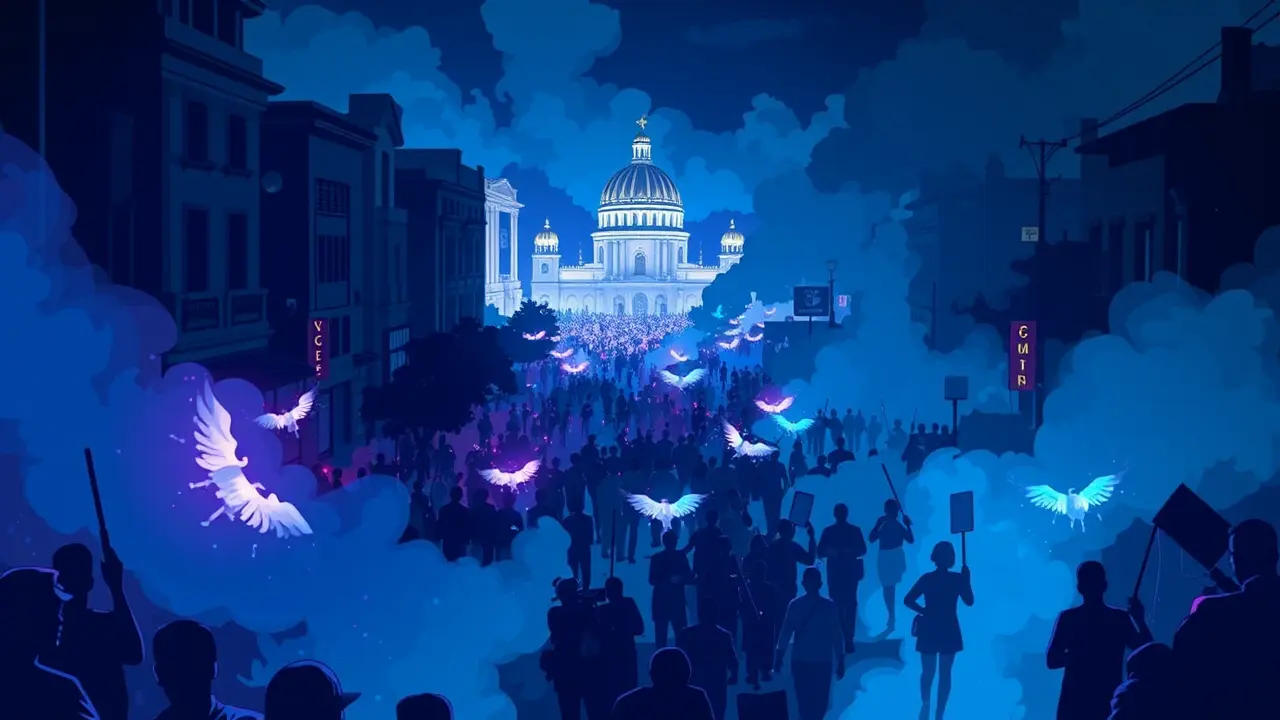Fuel subsidy protests cause political crisis in Ecuador.
The streets of Quito have become a front line, choked with tear gas and the raw energy of public fury, as Ecuador plunges into its most profound political crisis in recent memory. For three relentless weeks, the nation has been held hostage by sprawling, volatile protests, a direct and visceral reaction to President Daniel Noboa's administration cutting the long-standing subsidies on diesel.This isn't merely a policy dispute; it's a national convulsion. The spark was the government's abrupt announcement, part of a broader austerity package negotiated with the International Monetary Fund, which immediately sent fuel prices soaring.For the Indigenous communities, represented powerfully by the Confederation of Indigenous Nationalities of Ecuador (CONAIE), this was the final, unforgivable straw. They have mobilized en masse, their marches from the highlands converging on the capital, where they have erected barricades, blocked vital highways connecting the agricultural heartland to urban markets, and clashed repeatedly with military and police forces who have responded with a heavy hand.The human cost is already staggering: reports indicate several fatalities, hundreds of injuries, and a growing number of arrests, painting a picture of a nation tearing itself apart. This is a deeply rooted conflict, a ghost from Ecuador's past.CONAIE is no stranger to this fight; their history of mobilization is legendary, having been instrumental in toppling three presidents in the late 1990s and 2000s. They understand the power of grassroots disruption, and they see the subsidy cut not as an economic adjustment but as a declaration of war on the rural and urban poor, for whom diesel is the lifeblood of transportation and agriculture.The government, entrenched in the Carondelet Palace, frames this as a painful but necessary fiscal maneuver, arguing that the decades-old subsidies are a colossal drain on the treasury—costing billions annually—that the cash-strapped nation can no longer afford. They warn of hyperinflation and economic collapse without this bitter medicine.Yet, this standoff transcends diesel prices. It's a battle over Ecuador's soul, a clash between neoliberal economic orthodoxy demanded by international creditors and a fierce, populist demand for economic justice.The crisis has effectively paralyzed the country; supply chains are severed, food shortages loom in cities, and the crucial oil industry, the nation's primary export, has been forced to shutter wells and declare force majeure, bleeding millions from the national coffers daily. Behind the scenes, a frantic and so-far futile mediation effort, led by the Catholic Church, attempts to bridge an apparently unbridgeable chasm.The protesters demand a full reinstatement of the subsidy, a rollback of the decree, and a public apology. The government offers only minor concessions, refusing to capitulate entirely for fear of appearing weak and jeopardizing its IMF deal.The international community watches with bated breath, concerned about the stability of a key Andean nation. Analysts whisper about the potential for a military intervention or, in a worst-case scenario, a slide into authoritarian rule if Noboa declares a state of emergency.The air in Quito is thick not just with smoke, but with a palpable sense of history repeating itself, a tragic cycle of austerity and upheaval that Ecuador seems doomed to relive. The outcome is terrifyingly uncertain; either the government blinks, facing financial ruin, or the protests are violently suppressed, sowing seeds of resentment that will fuel the next crisis. For now, Ecuador holds its breath, a nation on the precipice, its immediate future written in the tear-gas haze over its capital.
It’s quiet here...Start the conversation by leaving the first comment.
© 2025 Outpoll Service LTD. All rights reserved.
